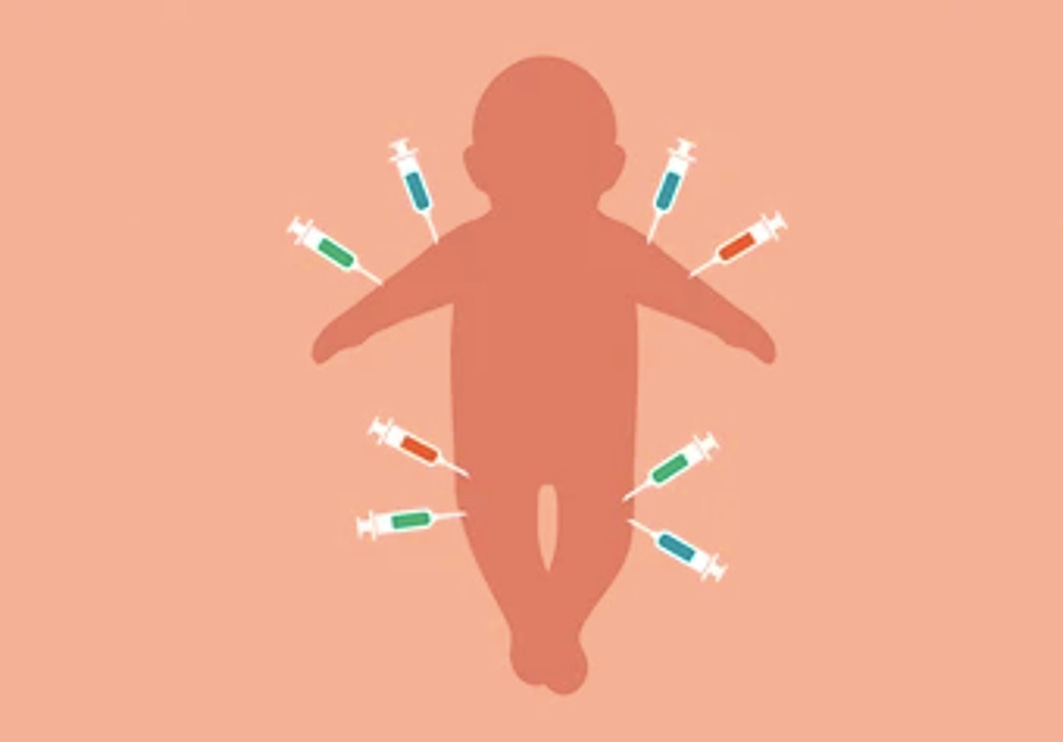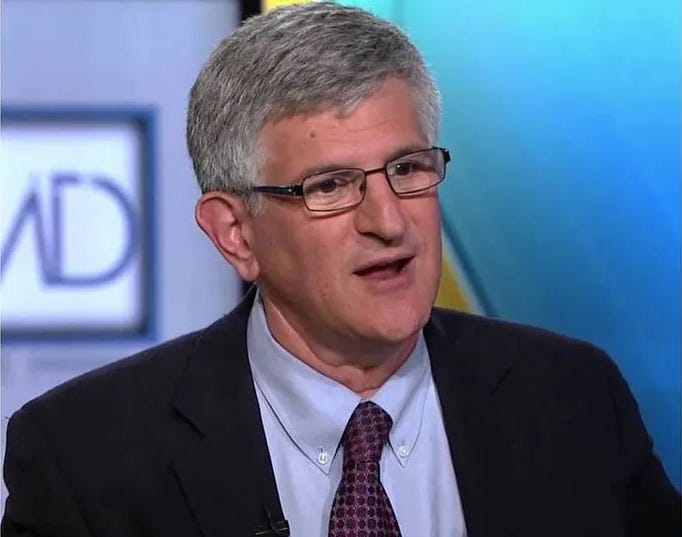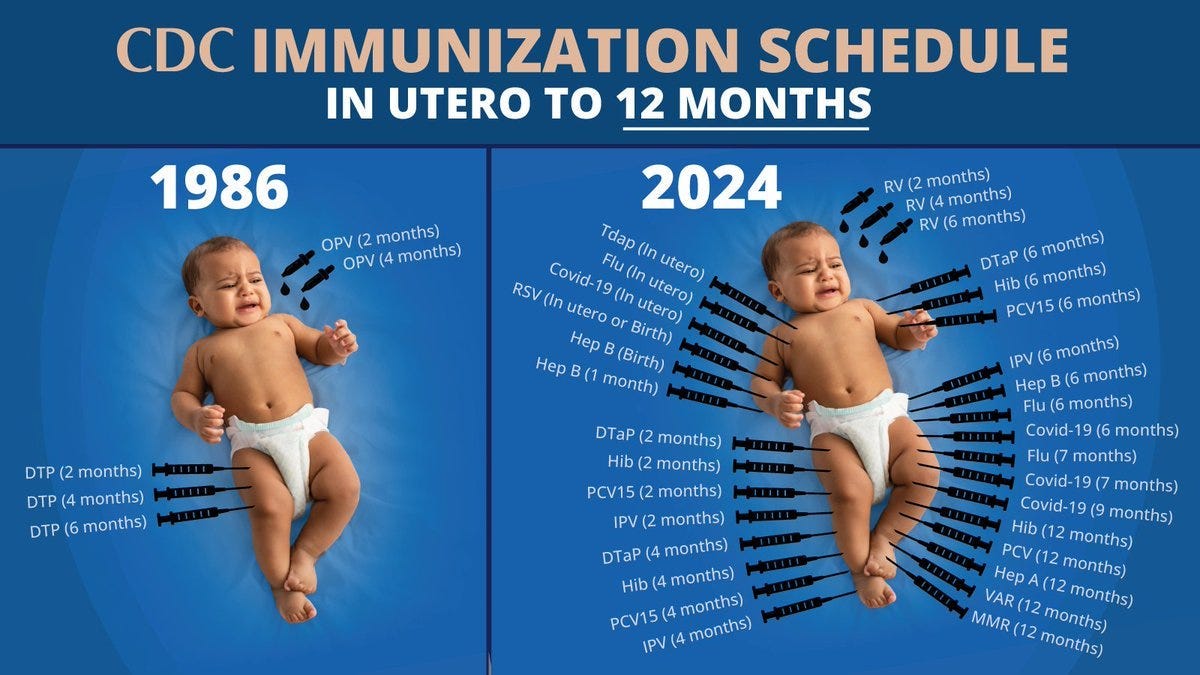Too many vaccines on the childhood immunisation schedule?
In 2002, well-known vaccinologist Paul Offit claimed there was no evidence that receiving “thousands” of vaccines could overwhelm or weaken a baby’s immune system.
In fact, he postulated that infants have “the theoretical capacity to respond to about 10,000 vaccines at any one time.”
As implausible as it seemed at the time, Offit’s claim was validated by Pediatrics, the medical journal endorsed by the American Academy of Pediatrics.
Now, with the growing rate of vaccine hesitancy, even some of the most entrenched vaccine proponents are questioning how many vaccines children should receive.
In a recent interview, Stanley Plotkin, a stalwart of the vaccine industry, admitted the US CDC’s immunisation schedule for children was too crowded, and had expressed his concerns to the CDC’s vaccine advisory committee.
In the United States, the schedule demands that children receive 68 vaccine doses targeting 18 different diseases – a notable increase from previous decades.
This contrasts with more conservative vaccination schedules like that in Denmark, where children are recommended to receive only 17 vaccine doses for 10 diseases.




